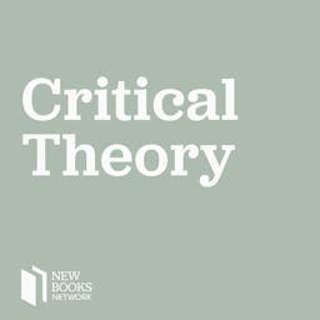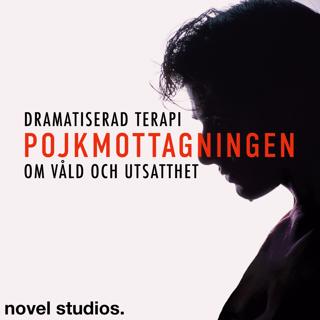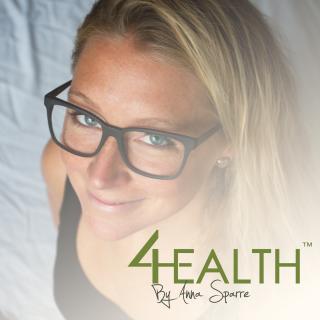
Nick Romeo, "The Alternative: How to Build a Just Economy" (PublicAffairs, 2024)
Winners Take All meets Nickel and Dimed: a provocative debunking of accepted wisdom, providing the pathway to a sustainable, survivable economy. Confronted by the terrifying trends of the early twenty-first century - widening inequality, environmental destruction, and the immiseration of millions of workers around the world - many economists and business leaders still preach dogmas that lack evidence and create political catastrophe: Private markets are always more efficient than public ones; investment capital flows efficiently to necessary projects; massive inequality is the unavoidable side effect of economic growth; people are selfish and will only behave well with the right incentives. But a growing number of people - academic economists, business owners, policy entrepreneurs, and ordinary people - are rejecting these myths and reshaping economies around the world to reflect ethical and social values. Though they differ in approach, all share a vision of the economy as a place of moral action and accountability. Journalist Nick Romeo has spent years covering the world's most innovative economic and policy ideas for The New Yorker. In The Alternative: How to Build a Just Economy (PublicAffairs, 2024), Romeo takes us on an extraordinary journey through the unforgettable stories and successes of people working to build economies that are more equal, just, and livable. Stephen Pimpare is a Senior Fellow at the Carsey School of Public Policy at the University of New Hampshire. Learn more about your ad choices. Visit megaphone.fm/adchoices Support our show by becoming a premium member! https://newbooksnetwork.supportingcast.fm/critical-theory
24 Jan 32min

Daisy Fancourt, "Art Cure: The Science of How the Arts Save Lives" (Cornerstone Press, 2026)
Is culture good for you? In Art Cure: The Science of How the Arts Save Lives (Cornerstone Press, 2026) Daisy Fancourt, a Professor of Psychobiology & Epidemiology and head of the Social Biobehavioural Research Group at University College London offers a comprehensive and compelling argument for the ways arts and culture offer health and social benefits for individuals and societies. The book offers both the evidence for the benefits of arts and culture, whilst at the same time showing how many people and places are missing out and excluded from the positive impact of engagement and experiences. A powerful call for the importance of art and culture, backed by a blend of rigorous scientific and medical evidence, as well as engaging personal stories and narratives, the book is essential reading across the arts, humanities and sciences. Learn more about your ad choices. Visit megaphone.fm/adchoices Support our show by becoming a premium member! https://newbooksnetwork.supportingcast.fm/critical-theory
23 Jan 27min

Michelle Henning, "A Dirty History of Photography: Chemistry, Fog, and Empire" (U Chicago Press, 2026)
In A Dirty History of Photography: Chemistry, Fog, and Empire (U Chicago Press, 2026), Professor Michelle Henning presents an environmental history of chemical photography through the lens of its deep connections to empire and industry. Dependent on the extractive practices of fossil-fueled industrial capitalism, chemical photography’s emulsions and films were highly sensitive to polluted atmospheres, and photographic companies had to work hard to control this sensitivity. Drawing on histories of empire, coal, and chemistry and from the archives of British photographic manufacturer Ilford Limited, Professor Henning exposes the ways photography shaped how we see and understand the atmosphere while leaving its toxic residues in the air, soil, and water. Structured as thirty-six short chapters and with over seventy illustrations, this innovative book begins in interwar London, follows the supply of Ilford products to photographers on the West African coast, and considers photography as a military technology linked to the development of chemical warfare. Combining close readings of photographs with discussions of low-light, tropical, and aerial photography, Professor Henning examines the extraction and development of photographic materials, their role in the current environmental crisis, and how they have shaped experiences of time and the environment. This interview was conducted by Dr. Miranda Melcher whose book focuses on post-conflict military integration, understanding treaty negotiation and implementation in civil war contexts, with qualitative analysis of the Angolan and Mozambican civil wars. You can find Miranda’s interviews on New Books with Miranda Melcher, wherever you get your podcasts. Learn more about your ad choices. Visit megaphone.fm/adchoices Support our show by becoming a premium member! https://newbooksnetwork.supportingcast.fm/critical-theory
22 Jan 57min

Robert Dorschel, "The Social Codes of Tech Workers: Class Identity in Digital Capitalism" (MIT Press, 2025)
Who are the people staffing the digital economy? In The Social Codes of Tech Workers: Class Identity in Digital Capitalism (MIT Press, 2025) Robert Dorschel an Assistant Professor in Digital Sociology at the University of Cambridge, explores an occupation that has emerged as central to modern economies and societies. Drawing on an extensive range of interview fieldwork, the book offers a compelling picture of the working lives, along with the social and cultural interests of these workers, giving details on a section of the tech profession that is neglected in discussions that focus on the billionaire founders and owners in the sector. The book is also theoretically rich, considering the nature of work in modern society, the question of where these workers fit within social class structures, and crucially how they experience and understand both work and class. A significant addition to research on the tech sector, the book is essential reading across the humanities and social sciences, and is available open access here. Learn more about your ad choices. Visit megaphone.fm/adchoices Support our show by becoming a premium member! https://newbooksnetwork.supportingcast.fm/critical-theory
20 Jan 40min

Laurie Parsons, "Carbon Colonialism: How Rich Countries Export Climate Breakdown" (Manchester UP, 2023)
Climate change is devastating the planet, and globalisation is hiding it. Laurie Parsons's book Carbon Colonialism: How Rich Countries Export Climate Breakdown (Manchester UP, 2023) opens our eyes. Around the world, leading economies are announcing significant progress on climate change. World leaders are queuing up to proclaim their commitment to tackling the climate crisis, pointing to data that shows the progress they have made. Yet the atmosphere is still warming at a record rate, with devastating effects on poverty and precarity in the world's most vulnerable communities. Are we being deceived? Outsourcing climate breakdown explores the murky practices of exporting a country's environmental impact. A world in which corporations and countries are allowed to maintain a clean, green image while landfills in the world's poorest countries continue to expand and droughts and floods intensify under the auspices of globalisation, deregulation and economic growth. Taking a wide-ranging, culturally engaged approach to the topic, the book shows how this is notonly a technical problem, but a problem of cultural and political systems and structures - from nationalism to economic logic - deeply embedded in our society. Learn more about your ad choices. Visit megaphone.fm/adchoices Support our show by becoming a premium member! https://newbooksnetwork.supportingcast.fm/critical-theory
18 Jan 44min

Ryan Donovan, "Broadway Bodies: A Critical History of Conformity" (Oxford UP, 2023)
Broadway has body issues. What is a Broadway Body? Broadway has long preserved the ideology of the "Broadway Body": the hyper-fit, exceptionally able, triple-threat performer who represents how Broadway musicals favor certain kinds of bodies. Casting is always a political act, situated within a power structure that gives preference to the Broadway Body. In Broadway Bodies: A Critical History of Conformity (Oxford UP, 2023), author Ryan Donovan explores how ability, sexuality, and size intersect with gender, race, and ethnicity in casting and performance. To understand these intersectional relationships, he poses a series of questions: Why did A Chorus Line, a show that sought to individuate dancers, inevitably make dancers indistinguishable? How does the use of fat suits in musicals like Dreamgirls and Hairspray stigmatize fatness? What were the political implications of casting two straight actors as the gay couple in La Cage aux Folles in 1983? How did deaf actors change the sound of musicals in Deaf West’s Broadway revivals? Whose bodies does Broadway cast and whose does it cast aside? In answering these questions, Broadway Bodies tells a history of Broadway’s inclusion of various forms of embodied difference while revealing its simultaneous ambivalence toward non-conforming bodies. Learn more about your ad choices. Visit megaphone.fm/adchoices Support our show by becoming a premium member! https://newbooksnetwork.supportingcast.fm/critical-theory
18 Jan 1h 13min

Daniel Wyche, "The Care of the Self and the Care of the Other: From Spiritual Exercises to Political Transformation" (Columbia UP, 2025)
In The Care of the Self and the Care of the Other: From Spiritual Exercises to Political Transformation (Columbia UP, 2025), Daniel Wyche examines the political implications of what he calls practices of ethical self-change. These include Pierre Hadot’s notion of “spiritual exercises”; what the French sociologist of labor Georges Friedmann terms “interior effort”; Michel Foucault’s ethics of the “care of the self”; Martin Luther King Jr.’s understanding of “self-purification” as integral to direct action; and Audre Lorde’s claim that caring for herself constitutes a form of “political warfare.” Each reading furnishes Wyche with a lexicon of concepts and practices that he develops with great care toward a critical account of the self in relation to others.Daniel Louis Wyche is a Senior Scholar with the Columbia Center for Contemporary Critical Thought.Nathan H. Phillips is an independent scholar working out of South Bend, Indiana. Learn more about your ad choices. Visit megaphone.fm/adchoices Support our show by becoming a premium member! https://newbooksnetwork.supportingcast.fm/critical-theory
17 Jan 1h 16min

Mark Christian Thompson, "Phenomenal Blackness: Black Power, Philosophy, and Theory" (U Chicago Press, 2022)
Mark Christian Thompson's book, Phenomenal Blackness: Black Power, Philosophy, and Theory (University of Chicago Press, 2022) examines the changing interdisciplinary investments of key mid-century African American writers and thinkers, showing how their investments in sociology and anthropology gave way to a growing interest in German philosophy and critical theory by the 1960s. Thompson analyzes this shift in intellectual focus across the post-war decades, pinpointing its clearest expression in Amiri Baraka's writings on jazz and blues, in which he insisted on philosophy as the critical means by which to grasp African American expressive culture. More sociologically oriented thinkers, such as W. E. B. Du Bois, had understood blackness as a singular set of socio-historical characteristics. In contrast, writers such as Baraka, James Baldwin, Angela Y. Davis, Eldridge Cleaver, and Malcolm X were variously drawn to notions of an African essence, an ontology of Black being. For them, the work of Adorno, Habermas, Marcuse, and German thinkers was a vital resource, allowing for continued cultural-materialist analysis while accommodating the hermeneutical aspects of African American religious thought. Mark Christian Thompson argues that these efforts to reimagine Black singularity led to a phenomenological understanding of blackness--a "Black aesthetic dimension" wherein aspirational models for Black liberation might emerge. Brittney Edmonds is an Assistant Professor of Afro-American Studies at UW-Madison. I specialize in 20th and 21st century African American Literature and Culture with a special interest in Black Humor Studies. Read more about my work at brittneymichelleedmonds.com. Learn more about your ad choices. Visit megaphone.fm/adchoices Support our show by becoming a premium member! https://newbooksnetwork.supportingcast.fm/critical-theory
17 Jan 1h 2min





















